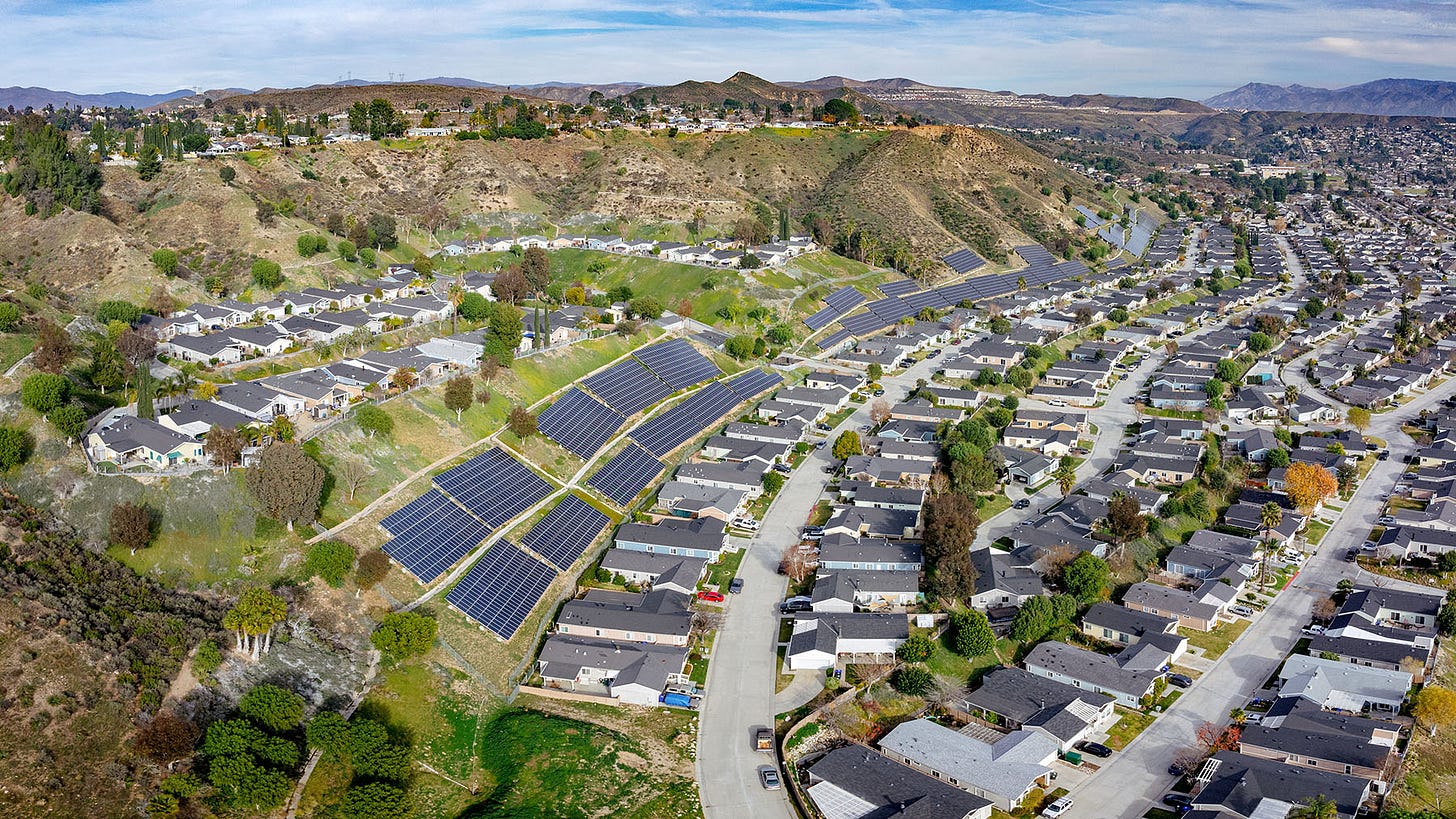Community solar
A couple of decades ago, we signed up to have some of our electricity come from hydro power. Nothing actually changed. Our utility divided its bill to highlight the power that they generated from hydro. They didn’t increase that hydro production, just charged us a premium for being so sustainably-minded.
It didn’t make any environmental or financial sense, but back then we felt good doing it.
Today there are better ways. We can increase renewable power production AND reduce our electric bill.
Solar panels on our property
One of our neighbors installed a system. We looked over their shoulders as they . . .
Researched competing solar installers nearby.
Chose an engineer to inspect their property, measured how much vertical sunlight it gets, and determined which was the best area for the panels. Many properties simply don’t get enough solar energy, or the slope of their roof or land is at the wrong angle to capture it.
Decided how much solar energy they want. Did they want battery storage? (Maybe use the battery in their electric car for storage (see an earlier Climate Dog)?
Got a firm quotation. Signed off on federal, state, and local tax credits, rebates, and net metering programs.
Decided how to pay for the system: cash? solar loans? a Power Purchase Agreement?
Applied for a building permit, and permission from their electric utility.
Listened to the solar installers banging away on their roof for a day or two.
Had an electrician install the inverter and connect the solar output to the 110-volt system in their house.
Hosted the building inspector for final approval.
Watched their utility connect the panels to its grid and send them less electricity - even taking some back from the new solar panels, termed ‘net metering’.
Planned a long-term cleaning and maintenance program.
Steadied their new ladder as they climbed up and cleaned the panels every three months.
And heard them bragging about their rooftop solar and the savings they’re expecting over time.
Alternative - panels on a community space
Another neighbor did the same thing - virtually. They told us they . . .
Researched and compared community solar companies in our area.
Chose a share size that aligns with their electricity usage.
Submitted their utility account number, address, and other necessary details to the provider.
Reviewed and signed a contract, with the company fronting virtually all their costs and assigning them some panels off in a field somewhere.
Received credits on their utility bill each month based on their share of the generated power from that field.
Never bragged about the system or its savings.
I asked them if they ever went out to that field to see the panels they owned. They didn’t. They liked the complete ‘virtual’ aspect of the whole set-up.
It’s not all great
Disadvantages to owned solar
We need an upfront outlay or investment.
If we move, we leave the installation and need to start again.
We need to sell (or rent) to someone who is okay with the installation. (But good systems can increase the value of their home when it sells.)
For tenants, an installation makes little sense.
Disadvantages to community solar
Not eligible for tax credits, subsidies, rebates. Need to compare costs without them.
Although community solar subscribers can save 5–20% on their monthly electricity bills, this opportunity is not yet available in many locations. We can check EnergySage, the National Renewable Energy Lab, or go to our our local utility’s website and search for ‘community solar.’
There’s may be an even better way
If we’re more concerned about our finances than our carbon emissions, we might get a lower price for our electricity if we simply forget about solar and sign up with a Competitive Energy Supplier (CES) through our utility. We can check out the CES options in Maine as an example of diverse rates that may be available to us.
If we want to keep track of developments - general not technical - in energy, resource use, environmental science, and sustainable development, we can subscribe to Tanner Janesky’s newsletter, Energy Resource Dynamics.
Start with his broad evaluation of community solar.





A lot of very good information here. We are contemplating solar for our roof,but will lookinto your suggestions. Again, Thank you. B
Thank you for going over the options! We have looked into community solar which may be the way to go for us- if it works well. I do not see people,cleaning their solar panels in our neighborhood, but I might be missing that.
We try to conserve the old way: turning off lights etc. It doeswork!
Very helpful info!
Kathy